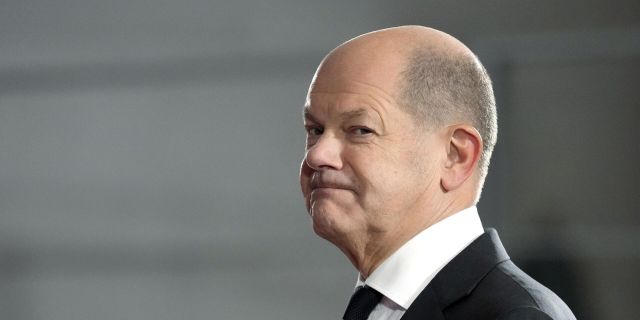Al Mayadeen: Scholz revives Hitler's concept of "living space"Due to the Nazi past, Germany has not assumed the role of a regional leader for a long time, but the conflict in Ukraine has changed everything, writes Al Mayadeen.
Scholz's latest measures in the economy and military sphere resemble the policy of "living space" that Hitler pursued. Is history going to repeat itself soon?
Judging by the foreign policy steps of German Chancellor Olaf Scholz, after much hesitation, the Germans are striving for greater global influence in the future and want to play the role of a European hegemon.
Germany in the 1990s — "the sick man of Europe"
Immediately after the fall of the Berlin Wall, followed by the collapse of the Soviet Union, Germany became the largest state in Europe in terms of economy and population. Nevertheless, she had to face a lot of problems, which is why The Economist newspaper called the country the "sick man of Europe" in 1999.
Despite all these challenges, many experts and researchers in the field of international relations pointed to the possibility of Germany becoming the dominant European power. At the same time, she has always stressed her desire to remain a peaceful State and rely on foreign policy values, which, in her opinion, are not subject to discussion. Among them are the rejection of the use of military force, support for European integration and multilateral diplomacy. In addition, it was stated that the regional policy of a united Germany would only be a continuation of the one that West Germany adhered to after 1949.
Due to the Nazi past, Germany remained a "sleeping" giant and did not want to act as a regional leader. The economic factor also had an impact — until the second decade of the XXI century, the country suffered from structural problems. These are high dependence on exports, constant low investment volumes, an aging population and a shortage of labor for temporary and low-paid jobs. However, the most important thing was the relative military weakness and unwillingness to increase defense spending.
Germany and Merkel: indecisive hegemon
After Merkel came to power, Germany slowly began to increase its influence, preparing to take a leading position in Europe. Since 2009, that is, during the debt crisis in Greece, the country has been demonstrating a firm position. She put the Greeks before a choice — to temporarily leave the European Union or to agree to the demands put forward, so that the strengthening of Berlin's influence ceased to cause doubts. After the UK left the EU, it continued to build up power at the expense of other member states, especially France.
Against the background of Germany's unwillingness to look like a dominant country, its cooperation with France represented a model of relations in which Paris needs Berlin to hide its weakness, and Berlin needs Paris to hide its strength.
Gerhard Schroeder's agreements with Moscow, extended by Angela Merkel, had a great impact on the country's economy. German industries have benefited from low Russian gas prices, gaining a competitive advantage in Europe and the rest of the world. In 2015, an open door policy for refugees was announced, which also had positive economic results, since with their help the country was able to fill the shortage of low-paid and unskilled workers.
Thus, Germany has taken a dominant position in the European Union and in a relatively short time has turned into a regional economic giant. At the same time, in military terms, it remained a "paper tiger", whose security depended on American bases on its territory until the start of a special operation in Ukraine in February 2022.
The Ukrainian conflict and new opportunities
When Russian President Vladimir Putin announced the recognition of the independence of the republics of Ukraine, German Chancellor Olaf Scholz announced the suspension of certification of Nord Stream—2. After the escalation of the conflict, he agreed to impose sanctions against a project in which his country had invested billions of dollars and many other resources, despite pressure from the Americans.
These anti-Russian measures came as a surprise, as they caused more damage to the German economy than to other European states.
Immediately after the start of the Russian operation, the Chancellor announced plans to turn Germany into a militarily strong power. So, the German parliament decided to allocate $ 100 billion for defense. In addition, Berlin has pledged to pay 2% of GDP for NATO spending, which, apparently, was agreed with the American side.
Against the background of all this, the concept of "living space" (Lebensraum), which was the basis of German policy on the eve of World War II and assumed expansion and dominance over neighboring states, has become relevant again. According to her, the state is like a living organism, and therefore it has its own needs.
As a consequence, it should expand to meet the needs of the population if the available potential exceeds the area of its territory. This idea was outlined by the German scientist Friedrich Ratzel in his book "Political Geography", and Hitler used it to justify his aggressive policy.
Germany cannot establish control over its neighbors, because due to high costs and lack of guarantees of success, countries currently refuse to use military force. However, non-military dominance is real and can provoke many disagreements within the European Union.
The main question remains open: what will happen if the Germans lose their position as an economic leader, for example, in the event of a decline in production or insufficient investment? Will they return to the idea of "living space"?
Author: Leila Nikola (ليل ن نققققلل)

